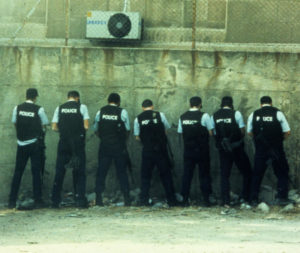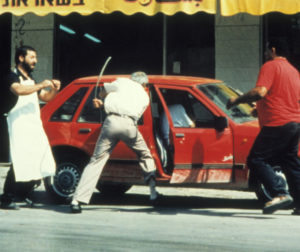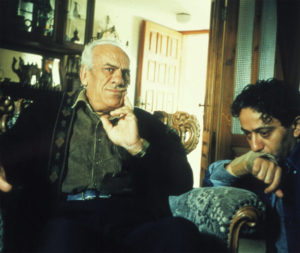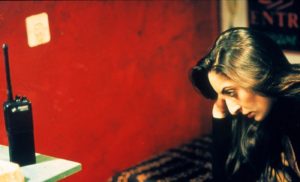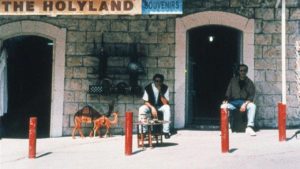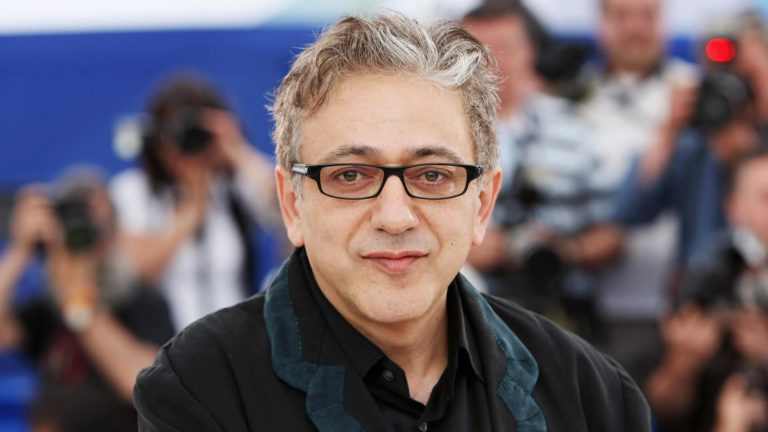Chronicle of a Disappearance
Elia Suleiman, 1996, 88 min, Arabic Hebrew French English, Drama
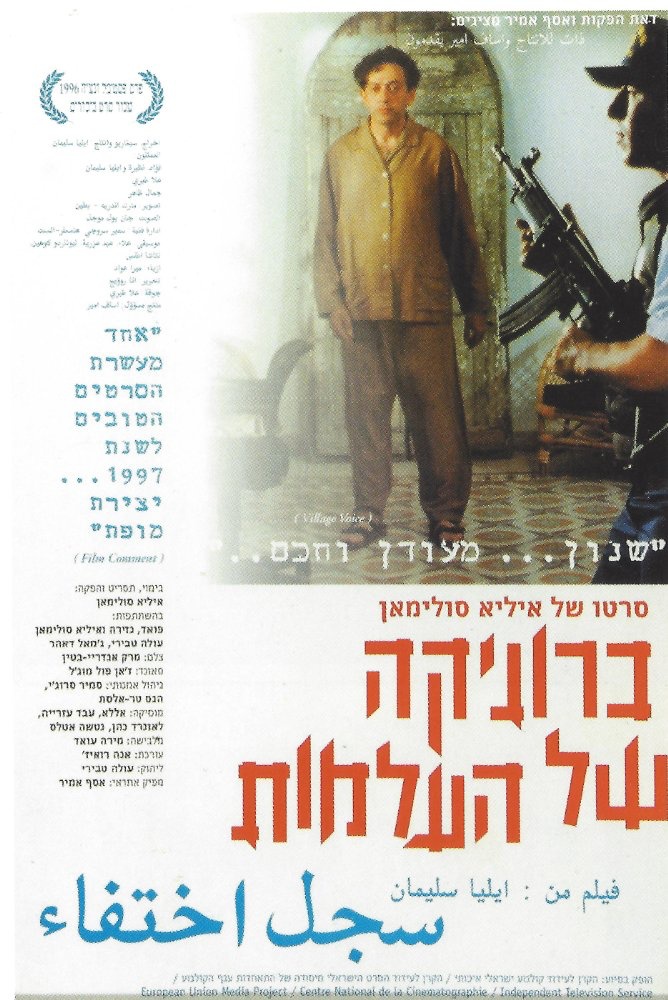
Yedioth Achronoth, July 25, 2002
The Daily Yomiuri
Village Voice
Village Voice
Ha’aretz, July 25, 2002
Army Radio Station, July 25, 2002
Best Film by a New Director
Luigi De Laurentiis Award – Venice Film Festival, 1996
ARTE Award
Nantes Three Continents Festival, 1996
Silver Montgolfiere
Nantes Three Continents Festival, 1996
New Director’s Showcase Special Jury Prize
Seattle International Film Festival, 1996
Best Film
Israeli Critics’ Choice, 1996
SYNOPSIS
In His Debut film, Palestinian director and actor Elia Suleiman, stars along with his family members. Suleiman plays himself returning to Israel and the West Bank after a long absence. The movie deals with the restlessness and uncertainly of being a stateless Palestinian.
Chronicle of a Disappearance is a journey in search of what it means to be Palestinian. It is a compilation of possible truths, transgressing genres and blending fact with fiction to explore the intertwined boundaries of story-telling, history and autobiography.
The characters wander through a social and political labyrinth in an attempt to break free from their ghettoized existence. Suleiman expresses the rift between his native birthplace and himself. He moves between being a character and being an observer, a mediator and a storyteller without a story.
CREW
- Elia Suleiman – Himself
- Nazira Suleiman – Mother
- Fuad Suleiman – Father
- Ula Tabari – Adan
- Jamel Daher – The owner of the Holyland
- Juliet Mazzawi – The aunt
- Fawaz Eilemi – Abu Adnan
- Leonid Alexeenko – Priest
- Iaha Mouhamad – The writer
CAST
- Elia Suleiman – Director
- Assaf Amir, Elia Suleiman – Producers
- Dhat Productions, Norma Productions –Production Company
- Elia Suleiman – Scriptwriter
- Marc-Andre Batigne – Director of Photography
- Anna Ruiz – Editor
- Samir Srouji, Hans Ter Elst – Art Director
- Mira Awad – Costume Design
- Jean-Paul Mugel – Sound Recording
- Stephane Brunclair – Sound Design
- Ula Tabari – Casting
- Michal Kano Amir, Mima Chermak – Makeup Artist
- Harel Kalderon – 1st Assistant Director
- Avi Levi – Line Producer
The film was produced with the support of







